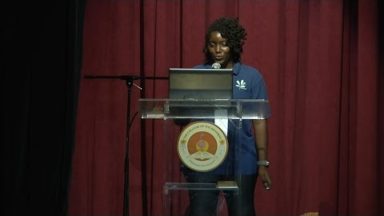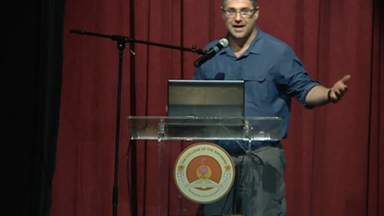Monitoring Coenobita clypeatus populations and the use of touch tanks in conservation initiatives: Helping Soldier crabs win the battle for top coastal scavenger in the Bahamas
Presented by Melanie DeVore
Melanie DeVore, Deborah Freile, and Sandra Voegeli
Soldier crabs, Coenobita clypeatus, are scavengers and play an important role in coastal ecosystems. If crabs are removed, ants become significant scavengers and nuisances. A major concern for maintaining Bahamian soldier crab populations is insuring that populations of whelks, Cittarium pica, are adequate to support shell use by breeding crabs. Fertilized eggs are transported for a month by female crabs and are deposited into the surf. We observed females depositing eggs in 2015 during a four day period associated with the July new moon. Only the largest females, those predominately in Cittarium shells with heights greater than 60 mm, deposit eggs. Over harvesting of large Cittarium shells for bait, food, or the marine curio trade would immediately have an impact on the breeding populations of crabs. A decrease in crab populations will then impact ant species and their population sizes. Selling crabs as pets, predominantly in the U.S. is also problematic. One prominent wholesaler reported to the New York Times in 2000 that they sold one million crabs/year. That same business reported to the Philadelphia Inquirer sales of 200,000 crabs/year in 2014 and that the crabs were obtained from Cap-Haitien and Port-au-Prince, Haiti. It is illegal to export soldier crabs in the Bahamas, however, that does not mean that smuggling of crabs is nonexistent. To help increase the decline of selling crabs in the U.S. we will employ touch tank outreach modules to inform both San Salvadorians, and tourists at Club Med, of the life history of soldier crabs and whelks. With generous support from Seacology, and B.R.E.E.F., San Salvador Living Jewels will work with teachers from throughout the Bahamas during their annual B.R.E.E.F. Teacher’s Workshop. In this way, Bahamian teachers can inform their students of sound conservation practices while tourists can be educated to not buy soldier crabs as pets.







Recent Comments